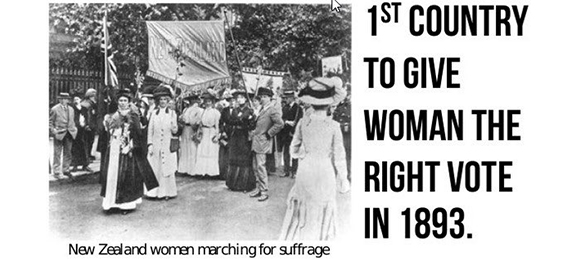
By signing the Electoral Bill, New Zealand remained the first country to permit women to vote. The bill was introduced as an outcome of years of suffragette conferences in cities and towns across New Zealand. Women traveled substantial distances to listen to speeches, addresses, signing petitions, and pass resolutions.
In 1893, women in New Zealand participated in the polls of the national elections of November.
The governor Lord Glasgow implemented the new Electoral Act and signed a bill on September 19, 1893. Then the country allowed women to vote in parliamentary elections.
When Did Women Get to Vote in New Zealand?
- A. 1890
- B. 1980
- C. 1893
- D. 1983
New Zealand and Women’s Suffrage
Women’s suffrage in New Zealand was recognized as a significant political problem in the late 19th century. At the beginning of colonial New Zealand, women were not authorized to participate in politics. People’s beliefs began to change in the middle of the 19th century. Women’s suffrage campaigners’ efforts showed some positive results after many years. Kate Sheppard led women’s suffrage in New Zealand.
Women voted for the first time in the election held on 28 November 1893. For the first time, Elizabeth Yates was elected as a Mayor of Onehunga in 1893.
Surprisingly, more eligible female voters than males in the 21st century, and women voted more than men.
In most countries, including the United States and Britain, women were not permitted to vote until the First World War.
In 1891, 1892, and 1893, they collected many large petitions submitting to Parliament to grant the vote to women. Sheppard’s effort to New Zealand was honored on the $10 note.
At present, the idea of women could or should not vote strange to New Zealanders. After the 2017 election, 38% of Parliament members were women compared to 1981 with 9%.
At the beginning of the 21st century, women achieved the country’s many constitutional positions, including the prime minister, speaker of the House of Representatives, attorney-general, governor-general, and chief justice.
Women were granted the right to vote in the United States in 1920, and in Great, Britain women were allowed to vote in 1928.
5 Crazy Reasons Why Were Women Not Allowed to Vote
Many reasons were presented to exclude women from voting. We have put together some of the weird reasons here.
- It is believed women’s brains were weaker than men’s, and women were not strong and capable of participating in politics.
- The mental impacts of voting may cause infertility.
- Most women didn’t prefer voting.
- Women would quit taking care of the home and family.
- Women were genuine and generous, which could affect the nature of politics.